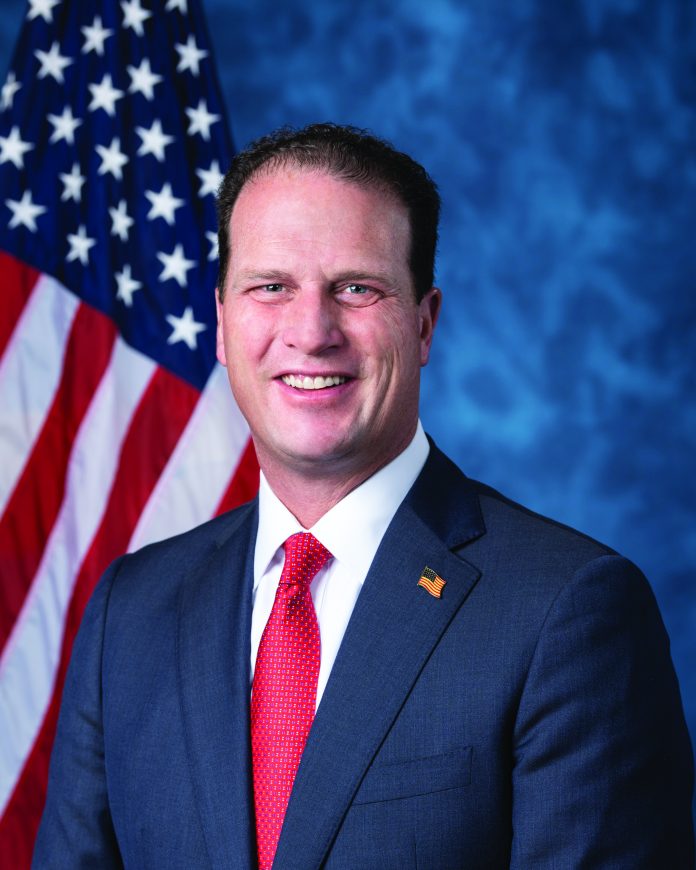WASHINGTON, D.C. Congressman August Pfluger on Friday submitted his priorities for the 2023 Farm Bill on behalf of agriculture producers in the 11th District of Texas.
“The 11th District of Texas is one of the most abundant suppliers of agriculture resources in the United States. Farmers and ranchers in our district and across the country deserve a Farm Bill that allows them to keep producing the food and fiber our country needs to survive,” Pfluger said in a news release.
Pfluger’s top 3 priorities for the 2023 Farm Bill
- Including Disaster Programs in the 2023 Farm Bill
- Increase the Agriculture Risk Coverage and Price Loss Coverage (ARC/PLC) Reference Prices
- Extend the Feral Hog Program and Include Additional Predation Legislation for Wolves and Birds of Prey
Title I (Commodity Programs)
- Increase the Agriculture Risk Coverage and Price Loss Coverage (ARC/PLC) Reference Price
Since 2018, cotton costs of production have increased by 24 percent.
When converted to a seed cotton basis, the reference price of 36.7 cents falls well short of the current costs.
The statutory seed cotton reference price in the commodity safety net programs (ARC/PLC) should be increased to better reflect current costs of production.
Base Title 1 payments on historic, rather than planted, acres.
- Improve Access to the Stacked Income Protection Plan (STAX)
Growers enrolled in the ARC/PLC programs are currently limited in their access to crop insurance products due to a prohibition on the purchase of the Stacked Income Protection Plan (STAX) on the enrolled farms.
The 2023 Farm Bill should enhance cotton’s safety net by eliminating the prohibition on simultaneous enrollment in STAX and PLC.
Growers who do not have seed cotton base or choose to forego enrollment in the seed cotton ARC/PLC program should have the opportunity to purchase STAX coverage at the 95% level.
- Disaster Assistance
Currently, disaster assistance, such as WHIP+/ERP, are a lifeline for farmers and ranchers dealing with extreme weather conditions.
However, it is becoming increasingly difficult to extend these programs and get them implemented in a timely matter for producers.
The 2023 Farm Bill should make disaster programs more palatable and streamlined while working in tandem with current crop insurance programs.
Maintain the Pima Agriculture Cotton Trust Fund, the Wool Apparel Manufacturers Trust Fund, and the Wool Research and Promotion Program.
These programs represent a collaborative effort of domestic growers and producers of raw Pima cotton and wool, as well as domestic manufacturers of wool and cotton yarns, fabrics, and apparel. They respond to various tariff and trade policies that have disadvantaged these important American agricultural and industrial sectors and are essential to placing them on a more level playing field against foreign competitors. They also maintain essential domestic capabilities in a highly globalized supply chain, which has significant implications for national security and health care preparedness.
Title II (Conservation)
Title II is beneficial for the environment and is an important tool for producers across the US.
The application of conservation funds should: 1) recognize the diversity of production practices; and 2) reward and not penalize the environmental productivity of early adopters.
- Include robust funding for the Environmental Quality Incentives Program (EQIP)
Producers in my district have utilized EQIP for many years to stay on top of brush control and conserve healthy grass. There is concern that Texas ranks very low in overall funding for EQIP. It is critical that states receive their fair share of the program, and I encourage streamlined application processes for the program to expedite producers receiving assistance.
Additionally, the Farm Bill should allow for flexibility in addressing local and regional resource challenges, including groundwater sustainability and drought relief, resilience, and preparedness.
It is also imperative to protect and strengthen programs that help livestock producers return to normal operations following adverse weather, attacks by predators, or extreme conditions.
Extend through FY2028 the feral swine eradication and control pilot program to respond to the threat feral swine pose to agriculture, native ecosystems, and human and animal health.
Include the bipartisan Wolf and Livestock Fairness (WOLF) Act to provide full reimbursement to ranchers for livestock harmed by endangered Mexican gray wolves.
Include the bipartisan Black Vulture Relief Act to give producers greater flexibility on black vulture management.
Additionally, the Committee should consider including similar legislation to “take” other birds of prey, specifically the Caracara.
Title VII (Research)
The Farm Bill should establish Department of Agriculture funding restrictions on institutions of higher education that have a relationship with Confucius Institutes.
“We know that the Chinese Communist Party (CCP) is utilizing Confucius Institutes to infiltrate American university campuses to engage in espionage, steal our intellectual property, and funnel information back to the People’s Liberation Army (PLA). Under no circumstances should USDA funds be pulled from American producers to enrich the CCP or the PLA,” the release said.
Title XI (Crop Insurance)
The Farm Bill should include a robust crop insurance program, with no reductions in premium cost share.
Means testing, income limits, or any policies that limit or negatively impact risk pools should be opposed.




